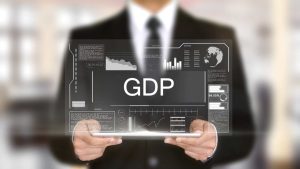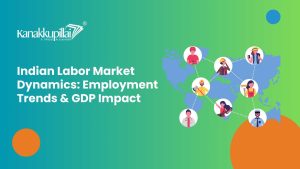![]()
Economically Weaker Sections
Economic disparity is a persistent issue that plagues societies around the world. Within any given country, there exist pockets of individuals and communities that face the daunting challenges of financial hardship and limited access to essential resources. In India, a nation known for its diversity, this issue takes shape as the Economically Weaker Sections (EWS) – a group that constitutes a significant portion of the population and often struggles to make ends meet. This article explores the concept of EWS, their socio-economic challenges, and the various initiatives to uplift them. It is essential to understand the significance of addressing the needs of the EWS to achieve truly inclusive growth.
Defining Economically Weaker Sections (EWS)
Economically Weaker Sections, commonly referred to as EWS, is a term used in India to identify and categorize a section of society that faces severe economic hardships. This group is characterized by low income, limited access to resources, and a constant struggle to meet the basic necessities of life. The Indian government officially recognizes the EWS as a distinct category, and they are often the primary beneficiaries of various welfare schemes and policies.
It is important to note that the definition of EWS can vary from one context to another, depending on factors like location, economic conditions, and the specific criteria established by government authorities. The aim is to identify and support individuals and families who are most in need of economic assistance.
Socio-Economic Challenges Faced by EWS
The Economically Weaker Sections face a multitude of challenges that impede their ability to lead a decent quality of life. These challenges are not isolated but interconnected, creating a cycle of poverty that is hard to break. Some of the key issues faced by the EWS include:
- Limited Access to Education: One of the primary challenges faced by the EWS is limited access to quality education. Many EWS children do not receive adequate schooling due to financial constraints, lack of infrastructure, and the need to contribute to their family’s income.
- Healthcare Inequities: Access to healthcare is often compromised for the EWS due to their inability to afford quality medical services. This can lead to untreated illnesses, chronic health problems, and a reduced life expectancy.
- Housing and Sanitation: EWS households frequently reside in inadequate housing conditions, often lacking proper sanitation facilities. This leads to increased vulnerability to diseases and unsanitary living conditions.
- Lack of Employment Opportunities: The EWS often struggle to secure stable and well-paying jobs. This can be attributed to limited skills, lack of access to vocational training, and discrimination in the job market.
- Nutritional Insecurity: Many EWS families struggle to put food on the table. Malnutrition is a common problem among children from these backgrounds, affecting their physical and cognitive development.
- Vulnerability to Exploitation: The EWS are vulnerable to various forms of exploitation, including child labour and unfair labour practices. This further exacerbates their economic hardship.
Government Initiatives for EWS Upliftment
Recognizing the gravity of the challenges faced by the Economically Weaker Sections, the Indian government has implemented several initiatives and policies aimed at their upliftment. These initiatives are designed to address the various facets of socio-economic challenges and provide opportunities for EWS individuals to break free from the cycle of poverty. Some of the significant government programs include:
- Reservation in Education: The Right to Education Act ensures that children from EWS backgrounds have access to free and compulsory education in government schools. In addition, reservations are provided in higher education institutions to promote inclusivity.
- Affordable Housing Schemes: The Pradhan Mantri Awas Yojana aims to provide affordable housing to EWS families by offering subsidies on home loans and construction costs. This initiative strives to improve living conditions for the underprivileged.
- Healthcare Initiatives: Programs like Ayushman Bharat aim to provide health insurance to EWS families, ensuring they have access to quality healthcare services without the fear of financial burden.
- Skill Development and Employment Schemes: Skill India and the Mahatma Gandhi National Rural Employment Guarantee Act (MGNREGA) focus on skill development and employment opportunities for EWS individuals. These programs aim to enhance employability and provide stable income sources.
- Nutritional Support: The Mid-Day Meal Scheme and Integrated Child Development Services (ICDS) provide nutritional support to EWS children, addressing malnutrition and improving their overall well-being.
- Financial Inclusion: The Pradhan Mantri Jan Dhan Yojana aims to promote financial inclusion by providing EWS individuals with access to banking and financial services.
Challenges in Implementing EWS Welfare Programs
While government initiatives for EWS upliftment are laudable, they are not without their challenges. Some of the hurdles faced in implementing these programs include:
- Identifying Eligible Beneficiaries: Determining who qualifies as an EWS beneficiary can be a complex task, leading to issues of exclusion or inclusion of those who may not be the most deserving.
- Bureaucratic Hurdles: Accessing government schemes can be daunting due to bureaucratic red tape, which can deter eligible beneficiaries from availing of the benefits.
- Misallocation of Resources: In some cases, the resources meant for EWS upliftment may be misallocated, leading to inefficiency and ineffectiveness in achieving the desired outcomes.
- Lack of Awareness: Many EWS individuals are unaware of the various government schemes designed for their benefit. This lack of awareness can limit the impact of these initiatives.
- Implementation Challenges: The successful implementation of these programs often depends on the efficiency and effectiveness of the local administration, which can vary widely across different regions.
Community-Based Approaches to EWS Upliftment
In addition to government initiatives, community-based organizations and NGOs play a significant role in addressing the challenges faced by the Economically Weaker Sections. These organizations often have a more nuanced understanding of the local context and can implement targeted interventions. Here are some approaches taken by such entities:
- Skill Development and Training: Local NGOs often provide skill development and vocational training programs to enhance the employability of EWS individuals. These programs are tailored to local job market demands.
- Microfinance and Entrepreneurship: Microfinance institutions offer small loans to EWS entrepreneurs, enabling them to start or expand their businesses. This empowers individuals to create sustainable income sources.
- Awareness Campaigns: NGOs conduct awareness campaigns to inform EWS individuals about their rights and entitlements under government schemes, helping them access available resources.
- Health Camps and Nutrition Programs: Mobile health camps and nutrition programs are organized to provide EWS families with access to healthcare services and nutritional support.
- Education Support: NGOs run after-school programs, provide educational materials, and offer scholarships to EWS children, bridging the education gap.
- Advocacy and Empowerment: These organizations advocate for policy changes and work toward the empowerment of EWS communities, enabling them to participate in decision-making processes.
The Role of Education in Breaking the Cycle of Poverty
Education is often considered the most powerful tool for breaking the cycle of poverty, and this holds true for the Economically Weaker Sections as well. When EWS children receive quality education, they gain the knowledge and skills needed to secure better job opportunities and, ultimately, improve their standard of living. Here are some key points regarding the role of education in EWS upliftment:
- Access to Education: Ensuring that EWS children have access to quality education is essential. Government initiatives such as the Right to Education Act and reservations in higher education institutions have made significant strides in this direction.
- Reducing Drop-Out Rates: One of the challenges is to reduce drop-out rates among EWS children. Financial incentives, free mid-day meals, and special coaching programs can help keep them in school.
- Vocational Training: In addition to academic education, vocational training is crucial for preparing EWS youth for the job market. Skill development programs can enhance their employability.
- Breaking Gender Barriers: Promoting education for EWS girls is particularly important, as they often face additional barriers to schooling. Initiatives like Beti Bachao, Beti Padhao (Save the Daughter, Educate the Daughter) aim to encourage the education of girls.
- Building Awareness: Efforts to create awareness among EWS parents about the long-term benefits of education can motivate them to prioritize their children’s schooling.
Healthcare for EWS: A Fundamental Right
Access to healthcare is another fundamental right that is often denied to the Economically Weaker Sections due to financial constraints. Healthcare disparities can lead to a range of issues, from untreated illnesses to reduced life expectancy. Some of the key considerations regarding healthcare for EWS include:
- Universal Health Coverage: Achieving universal health coverage is a priority, ensuring that EWS individuals have access to quality healthcare services without financial burden.
- Preventive Healthcare: Emphasis should be placed on preventive healthcare measures to reduce the incidence of diseases and promote overall well-being.
- Mobile Health Clinics: Deploying mobile health clinics in underserved areas can reach EWS communities who have limited access to healthcare facilities.
- Nutritional Support: Addressing malnutrition is crucial, and nutrition programs can provide essential support to EWS families, especially children.
- Awareness Campaigns: Health awareness campaigns can educate EWS individuals about the importance of regular check-ups and early disease detection.
- Maternal and Child Health: Focusing on maternal and child health can significantly improve the overall health status of EWS communities. This includes prenatal care, postnatal care, and immunization programs.
Economic Empowerment and Sustainable Livelihoods
Economic empowerment is a key component in the upliftment of the Economically Weaker Sections. Creating opportunities for EWS individuals to secure stable income sources and improve their economic well-being is essential. Here are some strategies for economic empowerment:
- Microfinance and Self-Help Groups: Microfinance institutions and self-help groups provide financial support to EWS individuals, enabling them to start small businesses and generate income.
- Entrepreneurship Development: Entrepreneurship training programs can help EWS individuals develop business skills and venture into entrepreneurial endeavours.
- Job Placement Programs: Organizations can collaborate with local businesses to create job placement opportunities for EWS individuals, helping them secure stable employment.
- Skill Development: Skill development programs, both government-sponsored and NGO-run, can equip EWS individuals with the skills needed for various trades and industries.
- Market Access: Facilitating access to markets and supply chains can help EWS entrepreneurs and artisans sell their products and services.
Challenges in Breaking the Cycle of Poverty
Breaking the cycle of poverty among the Economically Weaker Sections is a complex and long-term endeavour. Several challenges hinder progress in this area:
- Interconnected Issues: The challenges faced by EWS individuals are interconnected, and addressing one issue may require solving others. For example, improving education may also require addressing health and nutrition.
- Resistance to Change: Changing mindsets and habits within EWS communities and addressing social norms can be challenging. For instance, encouraging girls to pursue education may face resistance from traditional gender roles.
- Resource Allocation: Ensuring that resources allocated for EWS upliftment are distributed effectively and reach the most deserving beneficiaries is a significant challenge.
- Data Collection and Monitoring: Accurate data collection and monitoring of the impact of initiatives can be challenging, making it difficult to assess the effectiveness of interventions.
- Political Will: The political will to implement long-term policies and programs that support EWS upliftment is crucial. These initiatives often require sustained efforts over many years to yield significant results.
Conclusion
Empowering the Economically Weaker Sections is not just a moral imperative; it is essential for achieving true inclusive growth in a diverse and dynamic nation like India. The government, NGOs, and communities must work together to address the multifaceted challenges faced by the EWS and ensure they have access to quality education, healthcare, and economic opportunities.
While significant progress has been made through various government initiatives and community-based efforts, there is still much work to be done. The key lies in addressing the root causes of poverty, breaking the cycle of disadvantage, and creating a society where everyone has an equal opportunity to succeed. The Economically Weaker Sections have the potential to contribute significantly to the growth and development of the nation, given the right support and opportunities. It is our collective responsibility to ensure that they are not left behind and that they, too, can lead lives of dignity and prosperity.





